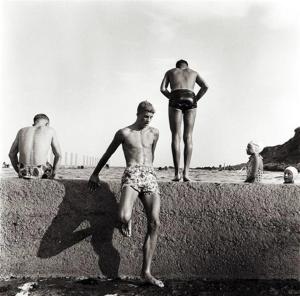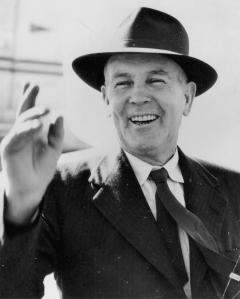Tags
aristocratic titles, classic names, english names, epithets and titles, famous namesakes, fictional namesakes, French names, Gaelic names, Greek names, imperial names, Indian names, Irish names, locational names, mythological names, name history, name meaning, name popularity, names from movies, nicknames, papal names, Roman names, royal names, saints names, Scottish names, surname names
Adrian
From the Roman name Hadrianus, meaning “from Hadria”. Hadria (now called Adria) is a town in northern Italy. Its name may be from the River Adria, named from the Venetic word adur, meaning “water, sea”. It has given its name to the Adriatic Sea, to which the river was once connected. A famous Roman namesake is Publius Aelius Hadrianus, otherwise known as the Emperor Hadrian, well known for the wall he built across northern England. There have been many saints named Adrian, including Adrian of Canterbury, an African-born English scholar famous for his learning. There have also been six popes named Adrian. The name Adrian has been used in Britain since the Middle Ages, but only became common in the 19th century. Adrian was #144 in the 1900s and joined the Top 100 in the 1940s; by the 1950s it was #94. It peaked in 1976 at #38 and left the Top 100 in 2004; it is currently around the 100s so still in reasonable use. This is a classic which has been superseded by Aidan, but a reliable choice which is still widely popular around the world.
Christopher
From the Greek name Christophoros, meaning “bearing Christ”; it was a name chosen by early Christians to indicate they held Jesus Christ in their hearts. The legendary St Christopher is said to have carried the Christ Child across a river, making the name’s meaning literal. Christopher seems to be a title or epithet of the Egyptian martyr St Menas, and the story is very similar to one told of the hero Jason in Greek mythology. Christopher is a hugely popular saint, and you may even know someone who has a St Christopher medal to keep them safe, as he is the patron of travellers, athletes, surfers, and sailors. Christopher has been used as an English name since the Middle Ages, and has remained in constant use for centuries. Famous Australian namesakes include poet Christopher Brennan, winemaker Christopher Penfold, Federal Minister Christopher Pyne, statistician Professor Christopher Heyde, and actor Chris Hemsworth. Christopher was #97 in the 1900s and left the Top 100 in the following decade. It returned in the 1940s and by the 1950s was #11, peaking at #2 in the mid 1980s. Christopher just left the NSW Top 100 in 2015, so is still common here, and popular in the English-speaking world.
Darryl
Variant of the English surname Darrell, from the Norman-French D’Airelle, meaning “from Airelle”; Airelle in Normandy means “courtyard”. Although Darrell has been used since the 17th century, the variant Darryl didn’t come into common use until the 19th. Darryl entered the charts in the 1930s at #174, and was on the Top 100 by the 1950s, when it was #80 for the decade. This corresponds to the period when Darryl F. Zanuck was head of Twentieth Century Fox. That was also its peak, and it left the Top 100 in 1969; it hasn’t charted since the 1990s (Daryl has a similar history, but slightly less popular). A famous fictional namesake is cheerful battler Darryl Kerrigan from The Castle, voted the favourite Australian film character of all time. Is that enough to give Darryl another go around the block? Some would say you’re dreaming to think it.
Denis
From a medieval French form of Dionysius, derived from Dionysos, the Greek god of wine. The god’s name combines his father’s name, Zeus, with Nysa, the mythological region where he was raised. Dionysius was an extremely common name in ancient Greece, and the name continued to be used in the Christian era. There is a Dionysius in the New Testament, a judge of Athens converted by St Paul. A number of saints have the name, and a pope as well. However, the most famous is the Dionysius who became bishop of Paris in the 3rd century and was martyred; he is known as St Denis and is one of the patrons of France. According to legend, after being decapitated he picked up his head and walked several miles with it, preaching sermons the whole way. He seems to have started a trend, as after that it became fashionable for saints, especially French ones, to carry their own heads. St Denis was very popular, and his name was introduced to England by the Normans. It became a great favourite in Ireland. Denis was #109 in the 1900s, and joined the Top 100 in the 1930s. It peaked in the 1940s at #41, and by the 1950s was #73. It left the Top 100 in 1957, and hasn’t charted since the late 2000s. The surname form Dennis has always been more popular, and this spelling is still in use.
Gary
Surname usually said to be a variant of the surname Geary, a medieval English nickname for names such as Gerard and Gerald, and thus another form of Gerry or Jerry. In Ireland Geary is used to anglicise the Gaelic name O Gadhra, meaning “son of Gadhra”, with the name Gadhra meaning “dog”. The surname Gary is more common in Ireland as a contraction of McGarry, from the Gaelic name Mag Fhearadhaigh, meaning “son of the brave”. Gary has often been understood as a pet form of Gareth, even though that isn’t its origin. Gary has been used as a boys name since perhaps the 16th century, coming into common use by the 19th. Gary entered the charts in the 1930s when Gary Cooper began his Hollywood career in films such as A Farewell to Arms. The name Gary was in the Top 100 by the 1940s and peaked in 1952 at #8, the year Gary Cooper starred in classic Western High Noon. Gary left the Top 100 in 1985, and hasn’t charted since the early 2000s. Its downfall is usually attributed to the numerous child sex offence charges against British pop star Gary Glitter (real name Paul Gadd) although it had already left the Top 100 long before he was first arrested. Garry had a similar history, but was a bit less popular.
Glenn
Scottish surname meaning “narrow valley”. It has been used as a personal name since the 18th century, becoming more common in the 19th. Glenn joined the charts in the 1940s, just as Hollywood star Glenn Ford was making his name known in war drama So Ends Our Night, and appearing in early film noir Gilda. It was in the Top 100 by the 1950s when it made #40 for the decade, peaking at #17 in the early 1960s, around the time Glenn Ford starred in epic Western Cimarron. It left the Top 100 in 1987, and hasn’t charted since the 1990s. There are a number of Glenns in the field of music, including pianist Glenn Gould, jazz star Glenn Miller, Glenn Frey from The Eagles, heavy metal guitarist Glenn Hughes, and Glenn Tilbrook from Squeeze. In Australia there is cricketer Glenn McGrath, and rugby league star turned politician Glenn Lazarus. Glenn is a simple nature name that could still appeal – in a discussion I had with other parents, Glenn was the 1950s boy’s name most people wanted revived. Glen had a similar history, but was less popular.
Keith
Scottish surname from the lands of Keith in East Lothian, whose name is said to come from a British word meaning “wood”. In the 11th century, the lands were supposedly given to a Germanic warrior of the Chatti tribe who helped defeat invading Danes, and some believe the name may be German in origin. The Clan Keith held a hereditary title as protector of the King of the Scots, and took leading roles in the Scottish Wars of Independence. One of the most powerful of the Scottish clans, various Keiths have been appointed ambassadors and keepers of the crown jewels, so have always had close ties with royalty. Keith has been used as a personal name since the 18th century; from the beginning it had strong associations with Scotland. The name became popular in the 19th century, perhaps due to George Elphinstone, Baron Keith, an admiral during the Napoleonic Wars. Keith was #43 in the 1900s, peaking in the 1920s at #8. By the 1950s it was #44 for the decade; it left the Top 100 in 1970, and hasn’t charted since the late 2000s. I do see the occasional baby named Keith (could country singer Keith Urban be an influence?), so this name is still going long past its peak, and could experience a revival in the future.
Neil
Based on the Irish name Niall, perhaps derived from the Old Irish word niadh, meaning “champion, warrior”, or from nel, meaning “cloud”. The most famous Niall in history is the semi-legendary 5th century Irish king Niall of the Nine Hostages. The name Niall was popular in medieval Ireland and Scotland. It was adopted by the Vikings, who had strong ties with Ireland in the Middle Ages, and the name was taken to Scandinavia in the form Njall. The Normans, who were of Viking stock, brought the name to England, although the name already existed in the north, where it had been introduced from Ireland or by Scandinavian settlers. Neil was in use by the 17th century, and originated in Scotland, perhaps influenced by the surname McNeil, meaning “son of Niall”. Neil was #110 in the 1900s and joined the Top 100 the following decade. It peaked in 1955 at #33 and left the Top 100 in 1986. It is currently around the 600s, and the Indian name Neel, meaning “blue”, is more common. Neil is still a pleasant Gaelic choice with some cool namesakes, including astronaut Neil Armstrong, singer Neil Young, and Beat muse Neal Cassady.
Shane
Anglicised form of Séan, the Northern Irish version of Seán, pronounced SHAYN rather than SHAWN, and an Irish form of John. Shane has been in common use since the 19th century, and was strongly associated with immigration from Ireland. The name became famous because of the classic 1953 Western film Shane, with Alan Ladd in the title role as the mysterious stranger who rides into a little Wyoming valley and becomes a guardian, teacher, and inspiration to a family of settlers still unskilled in the ways of the West. The name Shane rocketed into the Top 100 from nowhere in 1954, and was #69 for the decade. It peaked in 1973 at #12 and left the Top 100 in 1997 (cricketer Shane Warne doesn’t seem to have helped, even at the peak of his success). It is now around the 500s and drifting away like its famous namesake – will anyone ever cry out, Come back, Shane!, I wonder?
Wayne
English occupational surname for a wagon-driver or wagon-maker, from the Old English waegn, meaning “cart, wagon”. It has been used as a personal name since the 18th century, and was more common in the United States – probably because of Anthony Wayne, who was General in Chief of the Army during the American Revolutionary War. The name Wayne first charted in the 1930s, the decade when Hollywood star John Wayne began his career in Western films; he hit the big time in 1939 with Stagecoach. Interestingly, 1939 was also the year that superhero Batman first appeared, the alter ego of billionaire playboy Bruce Wayne; this seems significant, although the creators named him after Anthony Wayne. Wayne was in the Top 100 by the 1940s and peaked in 1955 at #11, the year after John Wayne starred in airline disaster flick The High and the Mighty. It left the Top 100 in 1987 and hasn’t charted since the 1990s, the name disappearing after the Wayne’s World movies with Mike Myers as partying slacker Wayne Campbell. This name is no longer excellent, which is bogus and sad.
POLL RESULTS
The public’s favourite 1950s names were Adrian, Christopher and Neil, and their least favourites were Darryl, Denis and Gary.
(Picture shows At Newport, 1952, by classic Australian photographer Max Dupain; now held at the Art Gallery of NSW)










